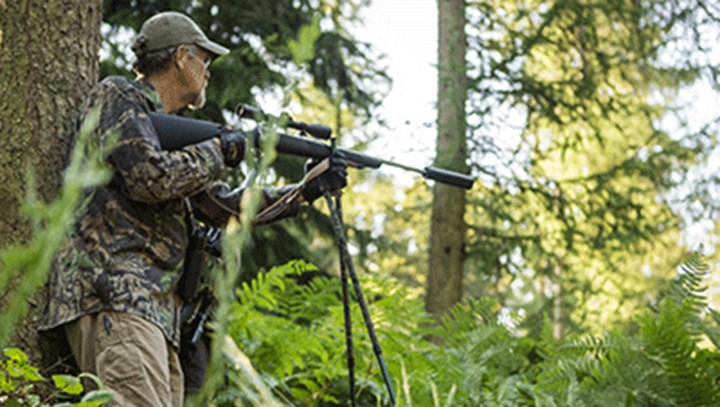
by Rose Bier - Saturday, July 1, 2017

Due to massive public education—much of it from the NRA—we now know that whether in the field or on the range, the use of proper hearing protection is critical. Many of us know fellow sportsmen who have suffered some degree of hearing loss accumulated over a lifetime of shooting. A recent study published in The Laryngoscope, a medical journal that specializes in otolaryngology, found that many people do not use adequate hearing protection while hunting or shooting. While some findings of the study are disheartening, they reinforce the importance of the pending Hearing Protection Act of 2017 (H.R. 367) that, if passed, would increase access to firearm suppressors.
The study, titled “Epidemiology of firearm and other noise exposures in the United States,” sought to determine the prevalence of high-intensity work, recreational and firearms noise exposures along with the frequency with which hearing protection was used in each setting. Regarding firearms, the study indicated that 58.5 percent of respondents used hearing protection at all times over the last year, while the remainder inconsistently or never used hearing protection. Additionally, the study found that 20.3 percent of those who shot more than 10,000 rounds over the last year never used ear protection. In the conclusion, the authors note that “substantial noise exposures with potentially serious long-term hearing health consequences are frequently occurring with the use of firearms.”
Suppressors reduce the noise of a gunshot by an average of 20-35 dB—roughly the same amount as ear plugs or earmuffs—but unlike other forms of hearing protection, they are not susceptible to the type of user error that inevitably hinders effectiveness. Suppressors are particularly beneficial to hunters who frequently forgo wearing ear protection in order to maintain full situational awareness. In fact, according to the Center for Disease Control (CDC), “the only potentially effective noise control method to reduce students’ or instructors’ noise exposure from gunfire is through the use of noise suppressors that can be attached to the end of the gun barrel.”
The data provided by the Laryngoscope study and the proven benefits of suppressors is why the NRA’s Institute for Legislative Action (NRA-ILA) continues to support and promote the pending Hearing Protection Act of 2017. Current legislation established under the National Firearms Act of 1943 (NFA) requires buyers to pay a $200 tax and pass an enhanced background check that can take up to nine months to complete. Under the proposed Hearing Protection Act of 2017, suppressors would be regulated by the same rules that pertain to non-NFA firearms.
“Gun owners and sportsmen should be able to enjoy their outdoor heritage with the tools necessary to do so safely,” NRA-ILA Executive Director Chris Cox said. “This bill makes it easier to do that.”
E-mail your comments/questions about this site to:
[email protected]
Proudly supported by The NRA Foundation and Friends of NRA fundraising.
